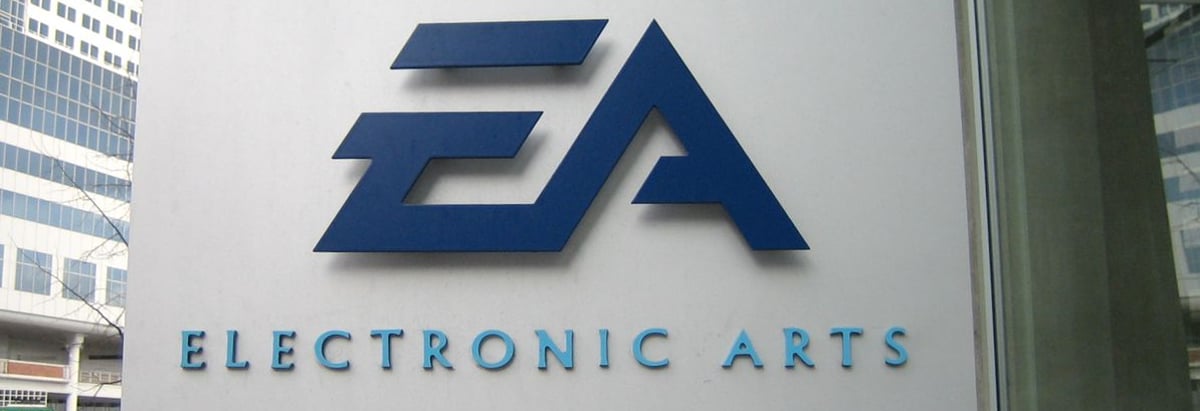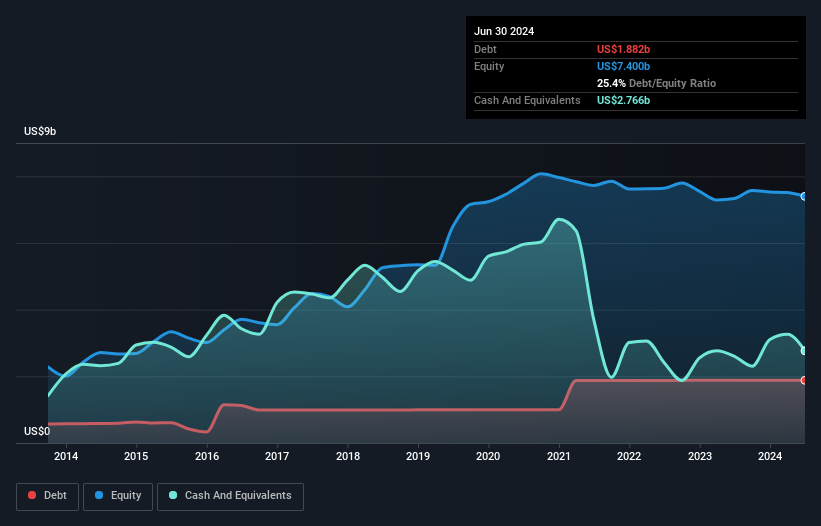- United States
- /
- Entertainment
- /
- NasdaqGS:EA
We Think Electronic Arts (NASDAQ:EA) Can Stay On Top Of Its Debt

David Iben put it well when he said, 'Volatility is not a risk we care about. What we care about is avoiding the permanent loss of capital.' So it might be obvious that you need to consider debt, when you think about how risky any given stock is, because too much debt can sink a company. As with many other companies Electronic Arts Inc. (NASDAQ:EA) makes use of debt. But the real question is whether this debt is making the company risky.
When Is Debt A Problem?
Debt assists a business until the business has trouble paying it off, either with new capital or with free cash flow. In the worst case scenario, a company can go bankrupt if it cannot pay its creditors. While that is not too common, we often do see indebted companies permanently diluting shareholders because lenders force them to raise capital at a distressed price. Of course, plenty of companies use debt to fund growth, without any negative consequences. The first thing to do when considering how much debt a business uses is to look at its cash and debt together.
Check out our latest analysis for Electronic Arts
How Much Debt Does Electronic Arts Carry?
The chart below, which you can click on for greater detail, shows that Electronic Arts had US$1.88b in debt in June 2024; about the same as the year before. But it also has US$2.77b in cash to offset that, meaning it has US$884.0m net cash.

How Strong Is Electronic Arts' Balance Sheet?
Zooming in on the latest balance sheet data, we can see that Electronic Arts had liabilities of US$2.47b due within 12 months and liabilities of US$2.84b due beyond that. Offsetting these obligations, it had cash of US$2.77b as well as receivables valued at US$433.0m due within 12 months. So its liabilities total US$2.11b more than the combination of its cash and short-term receivables.
Since publicly traded Electronic Arts shares are worth a very impressive total of US$37.3b, it seems unlikely that this level of liabilities would be a major threat. But there are sufficient liabilities that we would certainly recommend shareholders continue to monitor the balance sheet, going forward. Despite its noteworthy liabilities, Electronic Arts boasts net cash, so it's fair to say it does not have a heavy debt load!
On the other hand, Electronic Arts saw its EBIT drop by 9.6% in the last twelve months. If earnings continue to decline at that rate the company may have increasing difficulty managing its debt load. There's no doubt that we learn most about debt from the balance sheet. But ultimately the future profitability of the business will decide if Electronic Arts can strengthen its balance sheet over time. So if you're focused on the future you can check out this free report showing analyst profit forecasts.
Finally, a company can only pay off debt with cold hard cash, not accounting profits. While Electronic Arts has net cash on its balance sheet, it's still worth taking a look at its ability to convert earnings before interest and tax (EBIT) to free cash flow, to help us understand how quickly it is building (or eroding) that cash balance. Over the last three years, Electronic Arts actually produced more free cash flow than EBIT. That sort of strong cash conversion gets us as excited as the crowd when the beat drops at a Daft Punk concert.
Summing Up
While it is always sensible to look at a company's total liabilities, it is very reassuring that Electronic Arts has US$884.0m in net cash. The cherry on top was that in converted 123% of that EBIT to free cash flow, bringing in US$1.9b. So we don't think Electronic Arts's use of debt is risky. Of course, we wouldn't say no to the extra confidence that we'd gain if we knew that Electronic Arts insiders have been buying shares: if you're on the same wavelength, you can find out if insiders are buying by clicking this link.
Of course, if you're the type of investor who prefers buying stocks without the burden of debt, then don't hesitate to discover our exclusive list of net cash growth stocks, today.
Valuation is complex, but we're here to simplify it.
Discover if Electronic Arts might be undervalued or overvalued with our detailed analysis, featuring fair value estimates, potential risks, dividends, insider trades, and its financial condition.
Access Free AnalysisHave feedback on this article? Concerned about the content? Get in touch with us directly. Alternatively, email editorial-team (at) simplywallst.com.
This article by Simply Wall St is general in nature. We provide commentary based on historical data and analyst forecasts only using an unbiased methodology and our articles are not intended to be financial advice. It does not constitute a recommendation to buy or sell any stock, and does not take account of your objectives, or your financial situation. We aim to bring you long-term focused analysis driven by fundamental data. Note that our analysis may not factor in the latest price-sensitive company announcements or qualitative material. Simply Wall St has no position in any stocks mentioned.
About NasdaqGS:EA
Electronic Arts
Develops, markets, publishes, and delivers games, content, and services for game consoles, PCs, mobile phones, and tablets worldwide.
Excellent balance sheet and good value.
Similar Companies
Market Insights
Community Narratives



